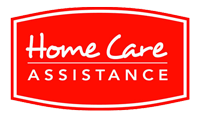
12 Ways to Provide Support for Seniors While Encouraging Independence
Written by: Home Care Assistance
Research shows that older adults want to live as independently as possible. As a family caregiver, you can empower your loved one to be independent, but sometimes caregivers fall into the trap of doing everything for their loved ones. This is a quick path to burnout and isn’t what their loved ones want.
People want independence, including those who need some extra support. In fact, research shows that the loss of independence can cause depression in older adults. As family caregivers, we can help our loved ones achieve the independence they desire.
Encouraging independence ensures that your loved one remains active. It gives them autonomy, which is empowering and makes life more enjoyable. This is also great for your relationship because your loved one will trust you to support their goals. Promote independence for your aging loved one in four areas of life with these twelve tips.
Independence for Seniors Around the House
- Make clothes and personal items easy to access.
If your loved one needs support getting dressed, they can still choose what to wear. Open wardrobes allow all clothes to be visible. This allows your loved one to see their options and make choices. If you don’t have an open wardrobe, present a few choices for your loved one to choose from.
Do the same for other personal items. Make sure your loved one can see or easily access things such as jewelry, money, and other items they like to have on hand.
- Ensure that clothes are easy to put on.
If your loved one can pull up their pants but has difficulty with buttons or zippers, consider pants with elastic waistbands. Some things are easier to put on than others. If your loved one is more independent with certain clothing styles, it is worth investing in them. Getting dressed with less support may give your loved one a confidence boost as they start their day.
- Invest in voice-activated technology.
There are several voice-activated home devices on the market, made by companies like Amazon and Google. These devices are a great resource for people with disabilities. They’re great for those with low vision, difficulty with fine motor tasks, or mobility challenges. Voice-activated devices can do a lot of things, including:
- Play music
- Operate the television
- Lock and unlock doors
- Control the thermostat
- Control lights
- Tell the time, date, and weather
- Make phone calls
Smart devices empower some people to live independently for longer. They allow people who can’t use smartphones or computers to access information. Plus, new uses for these technologies come out all the time.
- Use adaptive equipment throughout the house.
Age-friendly home improvements can enable older adults to be independent for longer. In the bathroom, you can install grab bars in the shower and near the toilet. You can add a shower chair and an elevated toilet seat. In the kitchen, you can store items on the counter or at eye level so your loved one doesn’t have to bend or reach. You can also buy weighted utensils to make meal times easier.
As you make changes to your loved one’s home, think through their daily routine. What challenges are they facing throughout the day? What tasks do they receive support with? Is there any equipment that would make things easier? Are there changes that you could make that would empower them to need less direct support? If you don’t know where to start, you may want to consult an occupational therapist. They can offer ideas of changes you can make to the home.
Community Independence for Aging Loved Ones
- Find a weekly activity for your loved one.
Older retired adults don’t get out of the house as often as people who are still in the workforce. This can become lonely and boring. Many elders report feeling isolated, which can lead to depression. Hobbies in the community are a great way to prevent isolation. Most communities have senior centers or senior-oriented events. There are events appropriate for all interests, such as:
- Bingo
- Exercise classes
- Outings to museums
- Sightseeing trips
These events are often accessible to people who use wheelchairs and walkers. Ask your loved one if they want to sign up for a few activities. If possible, encourage them to attend a weekly event. This will give them something to look forward to each week, and they may even make some new friends.
- Encourage physical activity and exercise.
Exercise is good for the body and mind. Regular physical activity can help prevent Alzheimer’s and dementia plus improve strength and mobility. Daily walks, exercise classes, and day trips are all great options. They all encourage movement and will get your loved one out of the house.
Legal Independence for Older Adults
- Consider alternatives to guardianship.
When older adults experience cognitive decline, their caregivers often have to make decisions for them. Many caregivers pursue guardianship. Judges appoint guardians for those they deem incompetent to make decisions. Guardians have the power to make decisions on the person’s behalf.
Guardianship can be expensive and severely limits your loved one’s rights. If you pursue guardianship, you will need to hire a lawyer and prove your case in court. Alternatives to guardianship exist, such as Power of Attorney (POA) and Medical Proxy. These options do not cost money and you can complete them under the witness of a notary.
POA and Medical Proxy are agreements made between you and your loved one. They’re completed while your loved one can still make decisions. Then, in the event that they need you to make decisions on their behalf, you will not have to pursue guardianship. These alternatives empower your loved one to decide who will speak on their behalf if they aren’t able to do so.
- Draft an Advance Directive.
End-of-life decisions are emotionally charged and personal. They’re difficult to discuss, especially when your loved one is relatively healthy. However, discussing end-of-life care is one of the most meaningful ways you can empower your loved one to be independent.
An advance directive is documentation of your loved one’s wishes about the end of life medical care they will receive. You can keep a copy for yourself and share one with your loved one’s doctors. If you ever have to make difficult decisions, you will know that you’re acting according to your loved one’s wishes.
Tips to Keep in Mind to Promote Independence for Seniors
- Everyone has a right to make mistakes.
As family caregivers, we want to protect our loved ones from everything that might harm them. From an unhealthy meal to a decision to keep living alone, our loved ones often make decisions that worry us. If we want to empower those we care for, we need to allow them the space to make decisions that we disagree with. Nobody can be safe all the time.
Caregivers must balance safety with autonomy. For example, maybe your mother is adamant about living at home. She might also be willing to allow a paid caregiver to come each evening for a few hours to prepare dinner and clean. While this may not be your preferred solution, it empowers your mom to live the way she wants to live. It can bring you peace of mind knowing that someone is checking on her each day. A caregiver can keep your parent safe at home by making sure she gets any assistance she might need.
- Encourage choices whenever possible.
Sometimes we take decisions for granted. The choices we make every day – such as the clothes we wear, the food we eat, and the movies we watch – seem small. While they’re small individually, together they add meaning and joy to our lives. Choices, whether they’re small or large, are empowering.
Older adults don’t always feel in control of their lives. Their bodies are changing and they may be losing abilities that they used to have. Those changes can be scary and disempowering. As caregivers, we can offer choices and listen to our loved ones’ opinions. We can remind them that they have power in their own lives.
- Provide the care your loved one wants.
As caregivers, we provide the best support when we know what our loved one wants. If you take the time to listen to your loved one, they will tell you how to best support them. Many older adults have strong opinions about the support they will accept. Some people refuse to let others help them use the restroom. As a caregiver, you can use creativity to ensure that you meet both their needs and desires. Maybe you can install a grab bar near the toilet and an elevated toilet seat.
- Keep an open dialogue with your loved one.
Some older adults don’t like to say anything when they need help. If you’re encouraging independence, check in often. Make sure your loved one doesn’t need more support than they’re currently receiving. Take time to notice how they’re doing. Offer different levels of support so they can choose what they’re comfortable with.
For example, maybe your mom is comfortable sweeping her kitchen, but mopping makes her nervous because the floors are slippery. If you keep an open dialogue, she will feel comfortable sharing these details with you. This will enable you to help while supporting independence.
You’ll see several benefits if you show your loved one that you value their independence. Your loved one will be less likely to experience depression. They will be more likely to find meaning and joy in their daily life and will trust you to support them. As a caregiver, you’ll put less pressure on yourself to do everything. Enjoy a more open and empowering relationship with the person you support.
Home Care Assistance shares inspiration and strategies for caregiving and positive aging, click the link to see the above article and others
https://homecareassistance.com/blog/supporting-seniors-promoting-independence
Categorized in: Work
This post was written by Elevate, Inc.




Comments are closed here.